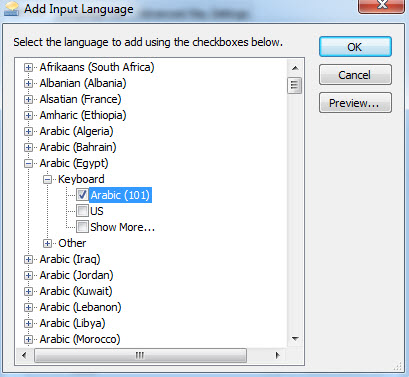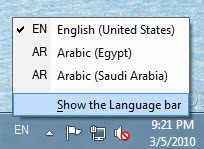(Makalah ini menurunkan pendapat beberapa ulama' yang dipetik daripada beberapa kitab tafsir tentang Lailatul Qadar) Terdapat perbezaan pendapat tentang status surah al-Qadr samada Makkiyyah atau Madniyyah. Ada pendapat menyatakan ia adalah surah pertama diturunkan di Madinah. Dalam kitab al-Itqan memilih pendapat yang menyatakan ia adalah makkiyyah. Maksud diturunkan adalah untuk menzahirkan al-Quran dari alam ghaib kepada dunia syahadah. Dalam surah al-Qadr menegaskan bahawa al-Quran telah diturunkan dari Luh Mahfuz atau dari langit yang tertinggi (Jami al-Bayan, J. 15, hlm. 258) ke langit dunia iaitu Baitul Izzah pada malam Lailatul Qadar (Ruh al-Maani, J. 10, hlm. 198). Ini ditegaskan lagi dengan sebuah hadis daripada Ibn Abbas yang menyatakan bahawa al-Quran diturunkan kesemua sekali pada malam Lailatul Qadar pada bulan Ramadhan ke langit dunia (Jami al-Bayan, J. 15, hlm. 258). Menurut Hamka, Lailatul Qadar memberi dua maksud, pertama; kemuliaan kerana setengah dari erti qadr itu ialah kemuliaan; kedua bermaksud penentuan kerana pada waktu itulah mulai ditentukan langkah yang akan ditempuhi oleh Rasulullah s.a.w didalam memberi pertunjuk kepada umat manusia. Kalau dipakai erti kemuliaan, maka mulai pada malam itulah kemuliaan tertinggi dianugerahkan kepada nabi Muhammad s.a.w kerana itulah permulaan Malaikat Jibril menyatakan dirinya dihadapan baginda didalam gua Hira�. Pada malam itu perikemanusiaan diberi kemuliaan dikeluarkan dari zulumat/kegelapan kepada nur/cahaya petunjuk Allah. Jika diberi erti penentuan bermaksud dimalam itu dimulai menentukan garis pemisah diantara kufur dengan iman, jahiliyah dengan Islam, syirik dengan tauhid. Dan penjelasan tersebut menunjukkan bahawa malam itu adalah malam yang istimewa berbanding dari segala malam (Hamka, J. 10, hlm. 8068). Malam yang membawa lembaran baru, turun wahyu ke dunia setelah terputus sekian lama. Terdapat beberapa pendapat tentang peristiwa Lailatul Qadar samada ia berlaku sekali atau datang pada setiap Ramadhan. Menurut Ibn Umar, Lailatul Qadar berlaku pada setiap Ramadhan (Jami al-�Bayan, hlm. 209). Pendapat yang lain dari setengah ulama ada menyatakan Lailatul Qadar berlaku sekali sahaja iaitu ketika al-Quran mulai diturunkan pertama kali. Adapun Lailatul Qadar yang kita peringati dan berusaha memperbanyakkan amal ibadat pada malam-malam di bulan Ramadhan adalah untuk memperteguh ingatan kita kepada peristiwa turunnya al-Quran. Kita hidupkan malam itu dengan mengambil berkat dan memperbanyakkan syukur kepada Allah s.w.t. Berdiri mengerjakan terawih dan qiamullail di bulan Ramadhan adalah bertepatan dengan malam turunnya al-Quran (Hamka, hlm. 8071). Menurut Syeikh Yusuf Amrullah, bapa Hamka, berpegang dengan pendapat al-Hafiz Ibn Hajar menyatakan bahawa Lailatul Qadar yang sebenar hanya sekali iaitu malam mula-mula al-Quran diturunkan. Yang kita buat amal ibadat didalam bulan puasa adalah mengingati Lailatul Qadar itu ialah memperingati dan memuliakan malam al-Quran diturunkan. Kita ingati setiap tahun agar kita bertambah teguh memegang segala yang diturunkan Allah didalam al-Quran. Hari kebesaran dalam Islam banyak yang diperingati dan menjadi amal ibadat seperti berpuasa pada 10 Muharam atau Asyura kerana mengenangkan beberapa kejadian pada Nabi-nabi yang terdahulu pada tarikh tersebut. Begitu juga dalam manasik haji telah dikatikan dengan kejadian zaman lampau seperti Saci antara Bukit Safa dan Marwah, mengenangkan betapa sulitnya Hajar mencari air untuk anaknya, Ismail di lembah yang tidak ada tumbuh-tumbuhan. Kita juga disunatkan melontar Jamrah bagi memperingati perdayaan syaitan kepada nabi Ibrahim kerana akan menyembelih puteranya Ismail atas perintah Allah. Apabila dikaitkan dengan menghidupkan malam Lailatul Qadar dapatlah diambil kesimpulan bahawa kesemua ibadat tersebut mempunyai tujuan yang sama iaitu untuk membesarkan syiar Allah dan menambah taqwa dalam diri. Terdapat berbagai cerita mengenai tanda malam Lailatul Qadar iaitu dapat disaksikan kejadian yang ganjil-ganjil seperti air berhenti mengalir, pohon kayu tunduk rukuk ke bumi dan sebagainya. Menurut Hamka semuanya ini adalah perkara yang tidak dapat dipertanggungjawabkan menurut ilmu agama yang sebenarnya. Terdapat beberapa hadis yang menceritakan tentang berlakunya Lailatul Qadar dan ia tetap berlaku atau berulang pada setiap bulan Ramadhan, cuma tidak dapat dipastikan secara tepat malam yang keberapa ia berlaku. Perbincangan panjang lebar diantara ahli-ahli Hadis, mengenai dengan malam apakah yang tepat Lailatul Qadar itu berlaku. Dalam kitab �Fath al-Basri� menurunkan tidak kurang dari 45 qaul tentang malam terjadinya Lailatul Qadar, masing-masing menurut pengalaman dengan catatan Ulama-ulama yang merawikannya, sejak dari malam 1 Ramadhan sampai 29 atau malam 30 Ramadhan. Semuanya dinukilkan oleh as-Syaukani di dalam `Nailul-Authar�nya. Oleh sebab itu dianjurkanlah supaya setiap malam bulan Ramdhan diisikan penuh dengan ibadat. Bagaimanapun terdapat juga riwayat yang kuat menyatakan bahawa Lailatul Qadar itu ialah pada malam sepuluh yang akhir dari Ramadhan ertinya sejak malam 21, kerana sejak malam 21 itu nabi s.a.w lebih memperkuat ibadatnya daripada malam-malam yang sebelumnya sampai beliau bangunkan kaum keluarganya yang tertidur. Abdullah bin Mas`ud dan asy-Sya`bi dan al-Hasan dan Qatadah berpendapat bahawa malam itu ialah malam 24 Ramadhan. Alasan mereka ialah kerana ada hadis yang menyatakan bahawa al-Quran diturunkan pada 24 Ramadhan. Satu riwayat lagi menyatakan jatuhnya ialah pada 17 Ramadhan. Orang yang berpegang pada 17 Ramadhan ini mengambil istimbath daripada ayat 41 dari surah an-Anfal kerana di sana tersebut bermaksud; � �� dan apa yang Kami turunkan kepada Hamba Kami pada Pemisahan hari bertemu dua golongan� `Hari bertemu dua golongan� ialah dalam peperangan Badar, pada 17 Ramadhan sedang `hari pemisahan� ialah hari turunnya al-Quran yang pertama yang disebut juga malam yang diberi berkat sebagaimana tersebut didalam surah 44 ad-Dukhan. Maka oleh kerana berhadapan dua golongan di Perang Badar itu, golongan Islam dan golongan Musyrikin terjadi pada 17 Ramadhan, mereka menguatkan bahawa Lailatul Qadar mulai turunnya al-Quran di gua Hira ialah 17 Ramadhan pula meskipun jarak waktunya adalah 15 tahun. Banyak hadis-hadis yang menyatakan Lailatul Qadar berlaku pada malam yang ganjil sepuluh terakhir dalam bulan Ramadhan (Ruh al-Maani, hlm. 191), dan ada pendapat hadis yang menetapkan pada malam 27. Ada diceritakan terdapat dikalangan sahabat Rasulullah merasa hairan dengan cerita seorang lelaki dari bani Israel beribadat sepanjang malam kemudian berjihad menentang musuh diwaktu siang dan melakukannya selama seribu bulan. Dalam cerita lain menyatakan seramai empat orang dari bani Israel beribadat kepada Tuhan selama delapan puluh tahun dan mereka tidak melakukan maksiat atau keingkaran. Datang Jibrail kepada nabi bertanyakan samada umatnya hairan dengan ibadat mereka itu. Allah telah menurunkan yang lebih baik dari itu, lalu dibaca surah al-Qadr. Dinyatakan juga bahawa pemerintah nabi Sulaiman dan Zulqarnain selama lima ratus bulan. Maka Tuhan jadikan amalan pada malam Lailatul Qadar (bagi mereka yang mendapatnya) lebih dari tempoh kedua pemerintahan tersebut dan lebih baik dari seribu malam amalan lelaki bani Israel itu. Dalam tafsir Ruh al-Maani ada dinyatakan setengah ulama al-Shafie berpendapat ada beberapa malam yang istimewa iaitu malam yang paling afdal ialah malam kelahiran-kelahiran nabi Muhammas s.a.w. Kemudian diikuti dengan malam Lailatul Qadar kemudian malam Irsa� dan Micraj, malam Arafah, malam Jumaat, malam Nisfu Syaaban dan kemudiannya malam raya (hlm. 194). Mengikut Anas daripada nabi menyatakan bahawa Allah s.w.t telah menganugerahkan kepada umatku (Muhammad) Lailatul Qadar dan tidak diberikan kepada umat sebelumnya. Keistimewaan lain yang berlaku pada malam Lailatul Qadar dinyatakan dalam ayat 4 yang menjelaskan bahawa malaikat dan roh turun pada malam itu dengan keizinan Tuhan. Yang dimaksudkan dengan `roh� ialah malaikat Jibrail dan ini pendapat jumhur ulama. Ia disebut secara khusus kerana kemuliannya. Ada pendapat lain menyatakan nabi Isa a.s turun untuk melihat umat dan menziarahi nabi Muhammas s.a.w. Ada juga pendapat menyatakan roh-roh orang yang mukmin turun untuk menziarahi keluarga-keluarga mereka. Ada pendapat satu lagi mentafsirkan kepada `Rahmat� dari Allah. Malaikat turun dari martabat mereka yang tinggi yang sebok dengan urusan Allah s.w.t untuk mengucap `salam� kepada orang mukmin. Oleh kerana mereka ramai, antara mereka turun secara kumpulan, ada yang turun dan ada yang naik semula. Oleh kerana kejadian mereka adalah dari nur atau cahaya maka tidaklah timbul masalah kesesakan. Para malaikat yang ramai itu pergi mengunjungi tempat kdiaman orang mukmin, kecuali rumah yang terdapat didalamnya anjing, khinzir, arak dan patung. Mereka megucup tasbih dan memohon keampunan bagi umat Muhammad s.a.w sehinggalah sampai waktu fajar barulah mereka naik semula ke langit. Melihat ini bertasbih memuji Allah s.w.t justeru syukur mereka kepada Allah yang telah melimpahkan keampunan kepada umat Muhammad s.a.w. Pada malam tersebut Allah s.w.t telah melipatkan rahmatnya kepada seluruh orang mukmin yang masih hidup dan juga kepada yang telah mati. Betapa pemurahnya Allah kepada hambaNya. Jika kita mengamati hadis dari Anas bin Malik yang menyatakan, barangsiapa yang menunaikan solat maghrib dan isya� berjamaah sepanjang bulan Ramadhan sesungguhnya dia telah mendapat sebahagian dari Lailatul Qadar. Bermaksud bukanlah suatu yang amat sukar untuk mendapatkan sebahagian dari malam Lailatul Qadar. Yang penting kita tidak mengabaikan mana-mana malam di bulan Ramadhan kecuali dengan melakukan ibadat dan paling minimum sembahyang berjamaah pada waktu maghrib dan isya�. Malam Lailatul Qadar adalah malam yang sejahtera dan selamat dari segala kejahatan dari awal malam sehinggalah terbit fajar. Memberi erti kebaikan menyelubungi sepanjang malam Lailatul Qadar. Tentulah hampa bagi mereka yang lalai yang tidak ambil berat tentang malam Lailatul Qadar, namun ia tetap datang disetiap bulan Ramadhan. | 





